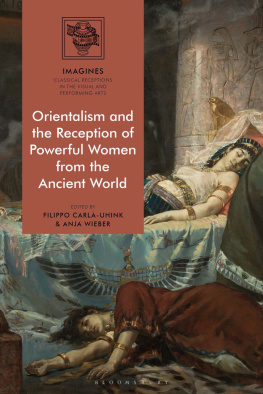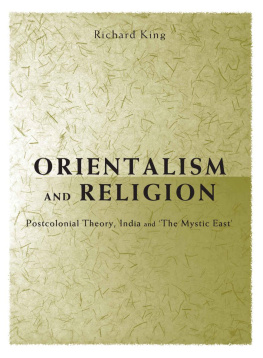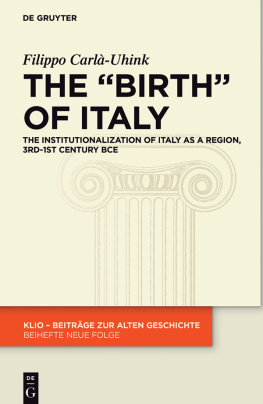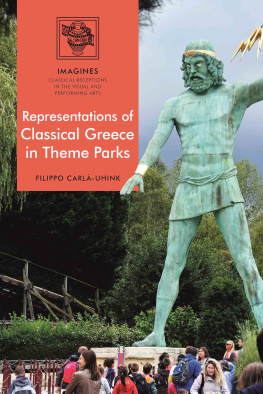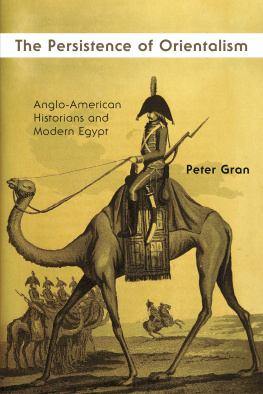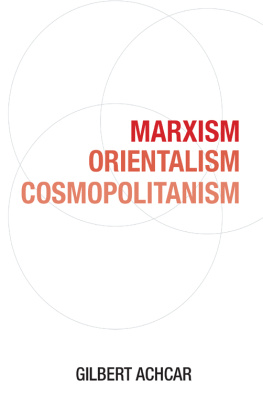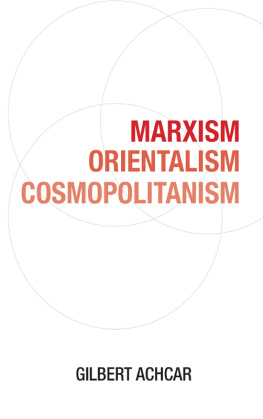Filippo Carl-Uhink - Orientalism and the Reception of Powerful Women From the Ancient World
Here you can read online Filippo Carl-Uhink - Orientalism and the Reception of Powerful Women From the Ancient World full text of the book (entire story) in english for free. Download pdf and epub, get meaning, cover and reviews about this ebook. year: 2019, publisher: Bloomsbury UK, genre: Romance novel. Description of the work, (preface) as well as reviews are available. Best literature library LitArk.com created for fans of good reading and offers a wide selection of genres:
Romance novel
Science fiction
Adventure
Detective
Science
History
Home and family
Prose
Art
Politics
Computer
Non-fiction
Religion
Business
Children
Humor
Choose a favorite category and find really read worthwhile books. Enjoy immersion in the world of imagination, feel the emotions of the characters or learn something new for yourself, make an fascinating discovery.
- Book:Orientalism and the Reception of Powerful Women From the Ancient World
- Author:
- Publisher:Bloomsbury UK
- Genre:
- Year:2019
- Rating:5 / 5
- Favourites:Add to favourites
- Your mark:
- 100
- 1
- 2
- 3
- 4
- 5
Orientalism and the Reception of Powerful Women From the Ancient World: summary, description and annotation
We offer to read an annotation, description, summary or preface (depends on what the author of the book "Orientalism and the Reception of Powerful Women From the Ancient World" wrote himself). If you haven't found the necessary information about the book — write in the comments, we will try to find it.
Orientalism and the Reception of Powerful Women From the Ancient World — read online for free the complete book (whole text) full work
Below is the text of the book, divided by pages. System saving the place of the last page read, allows you to conveniently read the book "Orientalism and the Reception of Powerful Women From the Ancient World" online for free, without having to search again every time where you left off. Put a bookmark, and you can go to the page where you finished reading at any time.
Font size:
Interval:
Bookmark:
Christopher Bishop
The crypts are silent,
Dark and cool their thresholds,
So that the black gaze of the blessed Galla,
Awakened, might not burn through stone.
Aleksandr Blok, Ravenna (1909)
For the Russian Symbolist Aleksandr Blok, the dark gaze of Galla Placidia was a fearful thing, a supernatural force that could incinerate stone. The Roman empress features in Bloks Ravenna, written during the summer of 1909, which begins his 23-poem cycle (Italian Verses). Disenchanted with Florence and Rome, Blok found Ravenna immediately appealing, and began to meditate upon the liminal geography of the ancient capital a city between the sea and the land, an architectural style between the classical and the medieval, a signifier between the living and the dead. In Ravenna, Blok could imagine a pagan empire transformed by the promise of celestial rule and, in the Mausoleum of Galla Placidia, he could imagine a tomb transformed into a womb.
Bloks engagement with Galla was both intensely personal and erotically charged, and yet the relationship he projected onto the long-dead empress was not unique. In the years between the two World Wars, Galla was to become the objet petit a for two quite different men the American poet Ezra Pound and the Swiss psychiatrist Carl Jung both of whom would find the opportunity to insinuate themselves into the interstices that punctuated the empress historical record.
In fact, the verifiable history of Aelia Galla Placidia remains elusive. Moreover, her history is one often delineated, not in terms of her own achievements, but in terms of her relationships with powerful men. Daughter of the Roman emperor
It will not be the task of this chapter, however, to alter that record. I offer no fresh insights into the history of the empress, no new documents or artefacts. Indeed, in one sense, I shall do nothing more than compound the injuries already done by continuing to discuss Galla, not as her own agent, but rather as the object of others desire. Edward Said noted the tendency for Western commentators to conceive of Oriental power-models as decadent and luxurious, and to use deliberately feminized and feminizing language when describing them. It could further be argued that the resultant axiom that Oriental rulers were viewed by Westerners as feminine also finds expression in its reverse, that the Occident has demonstrated a tendency to view feminine rulers as Oriental.
This chapter argues that it is this reflex that can be seen operating beneath the engagement of Western intellectuals with the historical figure of Galla Placidia during the early decades of the twentieth century. The extraordinarily personal relationships that Pound and Jung projected onto the dead empress, relationships of containment and control, and their willingness to envision Galla as Oriental, all find explanation in Saids model.
For more than a thousand years, the dark gaze of Galla Placidia stared back at the curious from her mausoleum in Ravenna. We have no idea where Galla is actually buried, although it seems logical to assume that she was laid to rest with other members of the imperial family near St Peters in Rome, but from at least the first half of the ninth century clerics were asserting that her mortal remains were to be found in Ravenna. The so-called Mausoleum of Galla Placidia was originally the oratory of Santa Croce, a church built for the adjoining imperial palace in 417. That palace now lies in ruins, and there is no historical evidence to link the oratory to Galla. The mausoleum still contains three sarcophagi, the central and largest of which was long purported to contain the body of Galla, while commentators have argued as to who might have been in the two flanking coffins Gallas husband Constantius, her son Valentinian or her brother Honorius being the common contenders.
Until the last quarter of the sixteenth century, tourists were invited to view the mummified corpse of the Augusta through a small hole that had been drilled in the side of the largest sarcophagus, the grisly sight at times illuminated by tapers that were pushed through the opening. In 1577, however, one of these tapers set fire to the desiccated body, reducing it to ash. That a mummy might burn so easily should come as no surprise, of course, but that an unnamed building in Ravenna might house the remains of an empress who died in Rome; or that a Roman emperor might be subordinated in burial to his spouse, mother or sister; or that a body preserved in the Egyptian style, encased in a sarcophagus, and interred among Oriental mosaics might be an Augusta of the Western Empire these things seem more difficult to credit.
This is not to say that the sarcophagi are misplaced. The layout and decorative motifs of the mausoleum certainly delineate its funerary purpose, but as Ellen Dura Europos. The form and function of the building fit neatly together, but both also point towards an origin in Oriental practices.
No less contested is the reception history of that other great artefact of Galla, the The scholarly consensus, however, that the Brescia Medallion is an Egyptian portrait from the third century, finds a disturbing parallel in the mausoleum of Galla Placidia, for in both instances there would seem to be a discernible ontological process in operation, a readiness to see the Western empress in these Oriental objects.
It must be remembered that although Saids Orient often functions as an imaginary signifier, its definition also encompasses a geographical reality as well. The Orient is the philosophical other of the Occident, but it is also its physical adjacent the lands lying east of Europe and, to some extent, south of the Mediterranean. The division of the later-Roman empire into Eastern and Western spheres of control finds some resonance in this model, although the conception of a Byzantine empire, which gained ascendency only after Montesquieu, certainly distorts our understanding of how the Romans themselves might have viewed their world. Nevertheless, it is true to say that provinces such as Egypt, Syria and Mesopotamia lay as much in the Roman Orient as in Saids.
Moreover, the city of Ravenna, on the eastern shores of Italy, its port aligned to welcome the seaborne traffic from It should come as no surprise, then, that Galla Placidia, an empress who came from the East and who ruled from Ravenna, should fall subject to an Orientalizing gaze. This is not to say, however, that the reception history of Galla is one of Orientalism only.
In 1879, the great luminary of the Catalan Renaxeina, Angel Guimer, chose the Augusta as the eponymous hero of his first tragedy, Gala Placidia.classical togas, and an empress adorned just as she appeared in the many coins issued during her lifetime. It is a vision of Galla (a nationalistic vision of her) that was taken up soon after by another Catalan voice, that of Jaime Pahissa.
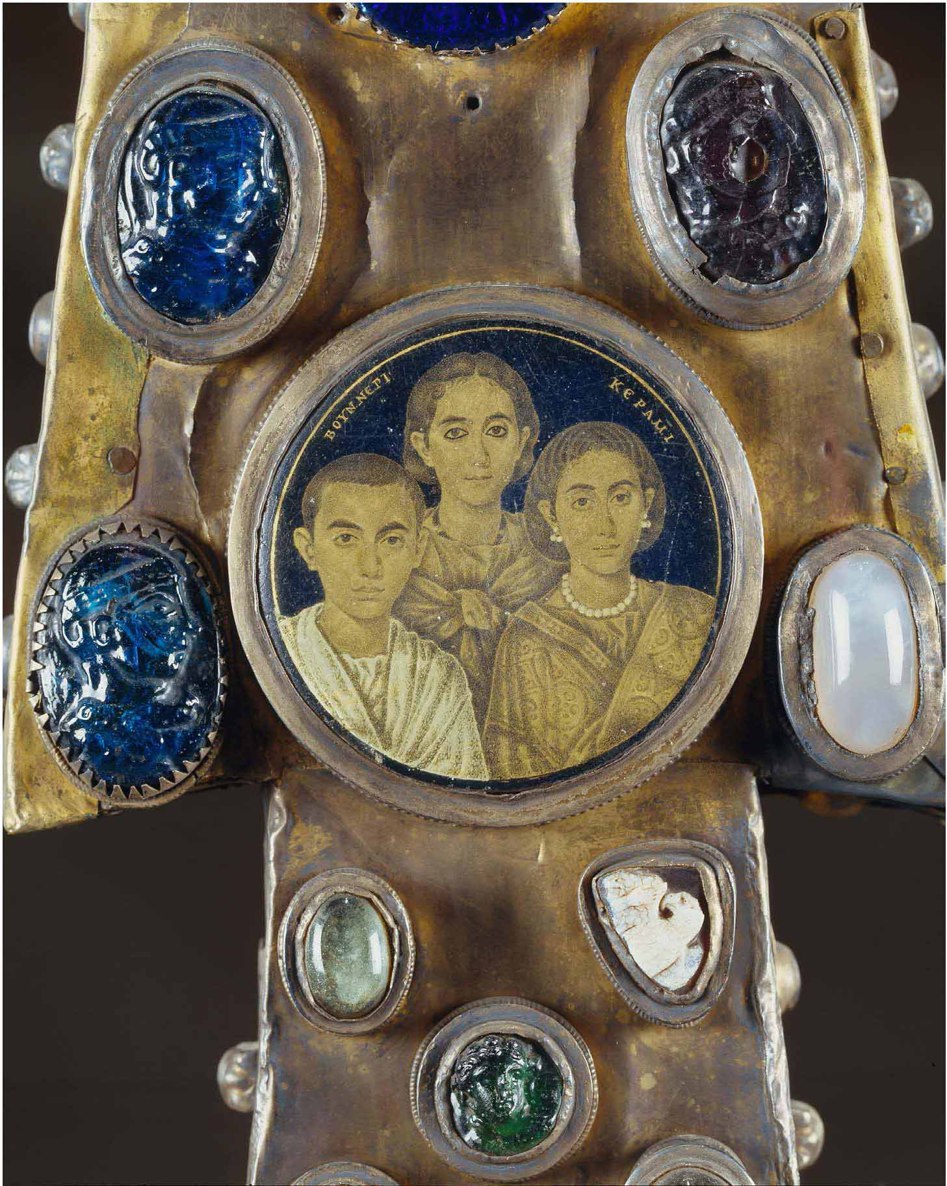
Cross of Desiderius, Musei Civici, Brescia Archivio Fotografico Musei di Brescia Fotostudio Rapuzzi.
By the time the New Empress Theatre Company was performing Gala Placidia, Pahissa had been working on an opera based on Guimers tragedy for more than two years. It Jung. For that woman, we must look to the east, and to the city of Ravenna.
From at least the ninth century, Galla had been seen as the empress who ruled from Ravenna, and so her reception history follows closely that of the city itself. Ravenna, like Galla, also began to re-emerge into the European consciousness at the end of the nineteenth century. The city had rated a mention in Thomas Nugents
Font size:
Interval:
Bookmark:
Similar books «Orientalism and the Reception of Powerful Women From the Ancient World»
Look at similar books to Orientalism and the Reception of Powerful Women From the Ancient World. We have selected literature similar in name and meaning in the hope of providing readers with more options to find new, interesting, not yet read works.
Discussion, reviews of the book Orientalism and the Reception of Powerful Women From the Ancient World and just readers' own opinions. Leave your comments, write what you think about the work, its meaning or the main characters. Specify what exactly you liked and what you didn't like, and why you think so.

